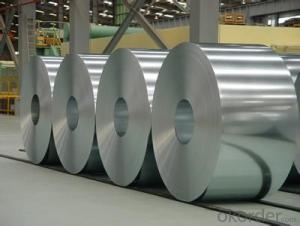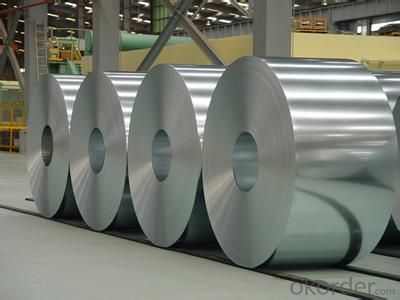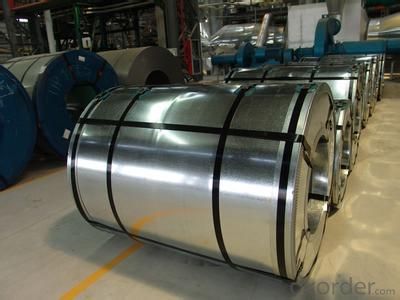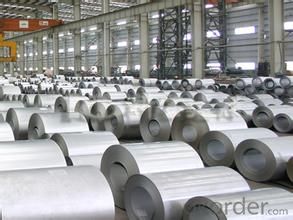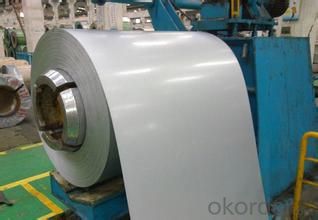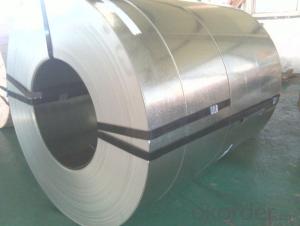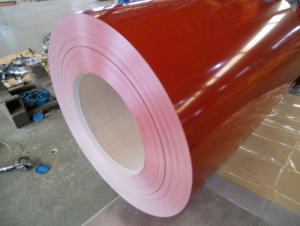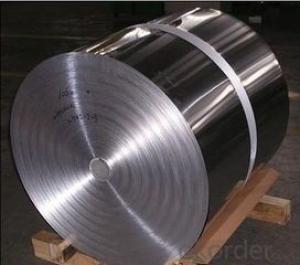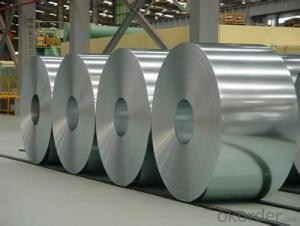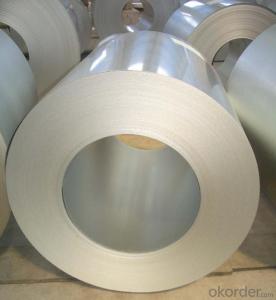Hot-dip Aluzinc Steel Building Roof Walls with Best Quality and Low Price
- Loading Port:
- China main port
- Payment Terms:
- TT OR LC
- Min Order Qty:
- 50 m.t.
- Supply Capability:
- 10000 m.t./month
OKorder Service Pledge
OKorder Financial Service
You Might Also Like
Hot-dip Aluzinc Steel Building Roof Walls with Best Quality and Low Price
1. Description of the Hot-dip Aluzinc Steel:
Hot-dip aluzinc steel structure is composed of aluminum-zinc alloy, consisting of 55% aluminum, 43% zinc and 2% at 600 ℃ silicon solidification temperature and composition, the entire structure is made of aluminum - iron - silicon - zinc, to form a dense quaternary crystals an alloy.
Hot-dip aluzinc steel has many excellent features: strong corrosion resistance, is three times the pure galvanized sheet; zinc surface with beautiful flowers, can be used as a building outside board.
Applications of hot-dip aluzinc steel:
1)Building: roof, walls, garages, soundproof walls, pipes and modular housing.
2)Automotive: muffler, exhaust pipes, wiper accessories, fuel tank, truck boxes, etc.
3)Appliances: refrigerator back, gas stove, air conditioners, microwave oven, LCD frame, 4)CRT-proof band, LED backlight, electrical cabinets, etc.
5)Farm: barn, sheds, silos, piping and other greenhouse.
6)Other: breaking heat insulation cover, heat exchangers, dryers, warm water, etc.
2.Main Features of the Hot-dip Aluzinc Steel:
• Excellent corrosion resistance
• High temperature oxidation resistance
• High hot reflectance
• Good manufacturability
•Beautiful appearance
•Surface coating
•Cost-effective
3.Hot-dip Aluzinc Steel Images
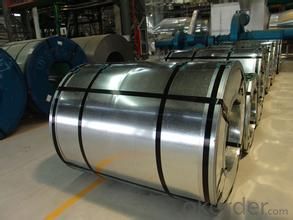
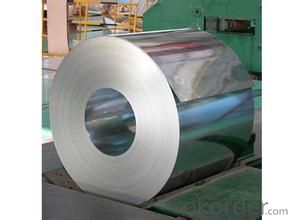
4.Hot-dip Aluzinc Steel Specification
AVAILABLE SPECIFICATION
HOT-DIP ALUZINC STEEL COILS | |
THICKNESS | 0.16mm-3.5mm |
WIDTH | 1250mm MAX |
COATING MASS | 30g/ m2-185 g/ m2 |
SPANGLE | Regular Spangle, Minimized Spangle, Zero Spangle |
SURFACE TREATMENT | Chromated / non-chromated, Oiled / non-oiled, Anti Finger Print |
COIL INNER DIAMETER | 508mm or 610mm |
HOT-DIP ALUZINC STEEL COILS | |||
COMMERCIAL QUALITY | ASTM A792M-06a | EN10327-2004 | JIS G 3321:2010 |
STRUCTURE STEEL | SS GRADE 230 SS GRADE 255 SS GRADE 275 SS GRADE 340 SS GRADE 550 | S220GD+AZ S250GD+AZ S280GD+AZ S320GD+AZ S350GD+AZ S550GD+AZ | SGLC400 SGLC440 SGLC490 SGLC570 |
5.FAQ of Hot-dip Aluzinc Steel
We have organized several common questions for our clients,may help you sincerely:
1.What advantages does your company have?
Cement : Annual capacity of 400 million tons, No. 1 in the world
Fiberglass: Annual capacity of 1 million tons fiberglass, No. 1 in the world.
Composite Materials — Carbon Fiber: Annual capacity of 10,000 tons PAN precursor and 4,000 tons carbon fiber, No. 1 in China
Composite Materials — Rotor Blade: Annual production capacity of 15,000 pieces, No.1 in China, Top3 worldwide
Glass: CNBM owns about 20 modern float glass product`ion lines, With annual capacity of 10 million square meters glass.
Light Weight Building Materials: Annual capacity of 1.65 billion square meters of gypsum board, No. 1 in the world.
Commercial concrete: Annual capacity of 0.35 billion cubic meters, No. 1 in the world.
Refractory Material: Annual capacity of 40,000 tons casting refractory, No.1 in the world.
2.What advantages do your products have?
Firstly, our base material is of high quality, Their performance is in smooth and flat surface,no edge wave ,good flexibility.
Secondly, high quality zinc ingoats, 97.5% zinc,1.5% silicon,1% others, the same zinc coating measured by metal coating thickness or by zinc weight
Thirdly, high precision: Tolerance strictly according to ASTM or JISG standard even more rigid.
We have full stes of testing equipment(for t best, cupule,chromatism,salt spray resistance, etc) and professional engineers.
- Q: I want to know because I'm going to Hershey Park on Wednesday and Steel Force looks about the same size, so, I wanted to know. It's not that Steel Force is too big for me.
- steel force breaks the 200ft mark and is a steel out and back roller coaster. Tidal force is a water ride that is about 100 ft tall. If you can do Steel Force then you should be able to handle anything at Hersheypark. the on;y ride they have bigger is the Kissing Tower
- Q: What are the quality control measures for steel coils?
- Quality control measures for steel coils include conducting visual inspections to check for surface defects, such as scratches, dents, or discoloration. Measurements are taken to ensure the proper dimensions and thickness of the steel coil. Mechanical properties, such as tensile strength and yield strength, are also tested to ensure they meet the required standards. Additionally, tests may be performed to check for coatings, such as zinc or paint, to ensure they are applied correctly and adhere properly to the steel surface.
- Q: What are the different types of steel alloys used in coil manufacturing?
- There are several different types of steel alloys used in coil manufacturing, including carbon steel, stainless steel, and high-strength low-alloy (HSLA) steel. Carbon steel is the most commonly used alloy, known for its high strength and durability. Stainless steel is used for its corrosion resistance and aesthetic appeal. HSLA steel offers a combination of strength, formability, and weldability, making it suitable for various applications in coil manufacturing.
- Q: I am buying my boyfriend a steel guitar for our one year anniversary and I was curious what brand or company I should look into. I want something high quality yet traditional. Money is not really an issue but I don't exactly want to spend an arm and a leg either.Thank you in advance!
- Hi, Since you haven't mentioned a price range, all I can say is that there are plenty of good guitar brands in the moderate to high price range. A good place to start would be to check out these brands - Martin, Taylor, Yamaha, Gibson. There are plenty more but these will get you started. In a lower price range - Epiphone, Takamine and Washburn have some nice guitars as well. There are a LOT of good brands that I haven't covered. These are just the usual suspects. Most of these will be good instruments and they vary in the quality of the wood used and in finer points of their design build, so don't worry too much about finding a 'gem'. Get one of the store staff members to play the guitars a little bit for you and you can pick out the one that sounds best. The sound is the most important. Happy hunting! :) Edit: jcr has a point. I assumed your're talking about a steel string acoustic.
- Q: What are the different types of steel coil surface appearances?
- The different types of steel coil surface appearances include mill finish, galvanized, painted, polished, and coated.
- Q: Like 49ers. Pittsburgh have long history of steel industry?
- Yes. US Steel used to be in Pittsburgh, before Reagan let them move and destroyed Pittsburgh. Pittsburgh also used to have more than 1 million residents (in the early 80s) but now has less than 300K. The Pittsburgh Steelers symbol is the US Steel symbol, colored in.
- Q: What are the typical coil width options?
- The typical coil width options vary depending on the industry and application, but common options include 12 inches, 18 inches, 24 inches, and 36 inches.
- Q: How are steel coils used in the manufacturing of braking systems?
- Steel coils are used in the manufacturing of braking systems as they are shaped and formed into various components such as brake discs, brake pads, and brake calipers. These coils are made of high-quality steel that provides strength and durability, ensuring efficient and reliable braking performance for vehicles.
- Q: What are the common surface finishes for steel coils?
- Steel coils can have various surface finishes, depending on specific requirements and applications. Some commonly used finishes include: 1. Hot-dip galvanization: This involves immersing the steel coil in molten zinc to create a protective layer. It offers excellent corrosion resistance and is often used outdoors. 2. Electro-galvanization: In this process, a thin layer of zinc is electroplated onto the steel coil. It provides good corrosion resistance and a smooth finish, making it suitable for automotive parts and appliances. 3. Galvannealing: Steel coils are coated with a zinc-iron alloy through a high-temperature annealing process. This finish improves paint adhesion and offers excellent corrosion resistance, making it ideal for automotive parts and construction materials. 4. Tinplating: A thin layer of tin is applied to the steel coil, providing excellent corrosion resistance and a shiny appearance. Tinplate is commonly used for packaging materials and cans. 5. Pre-painting: Steel coils are coated with a layer of paint, offering corrosion resistance and an attractive finish. It is often used for building materials like roofing and siding. 6. Cold-rolling: Steel coils are rolled at room temperature, resulting in a smooth and clean surface. Cold-rolled coils are used when a high-quality surface finish is required, such as in automotive parts and appliances. These are just a few examples of the surface finishes available for steel coils. The choice of finish depends on desired properties, such as corrosion resistance, appearance, and specific application requirements.
- Q: Can steel coils be coated with thermally insulating materials?
- Yes, steel coils can be coated with thermally insulating materials.
Send your message to us
Hot-dip Aluzinc Steel Building Roof Walls with Best Quality and Low Price
- Loading Port:
- China main port
- Payment Terms:
- TT OR LC
- Min Order Qty:
- 50 m.t.
- Supply Capability:
- 10000 m.t./month
OKorder Service Pledge
OKorder Financial Service
Similar products
Hot products
Hot Searches
Related keywords
